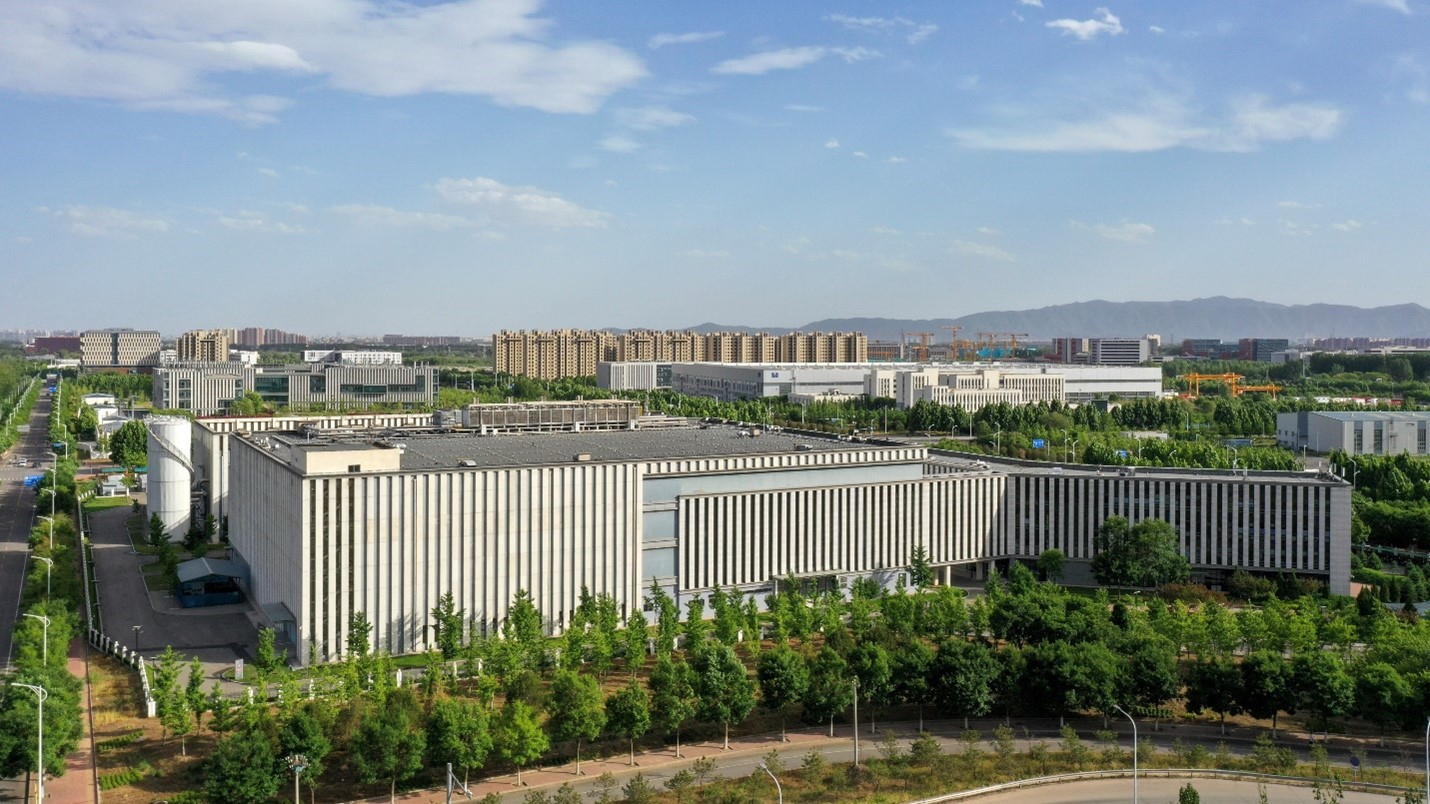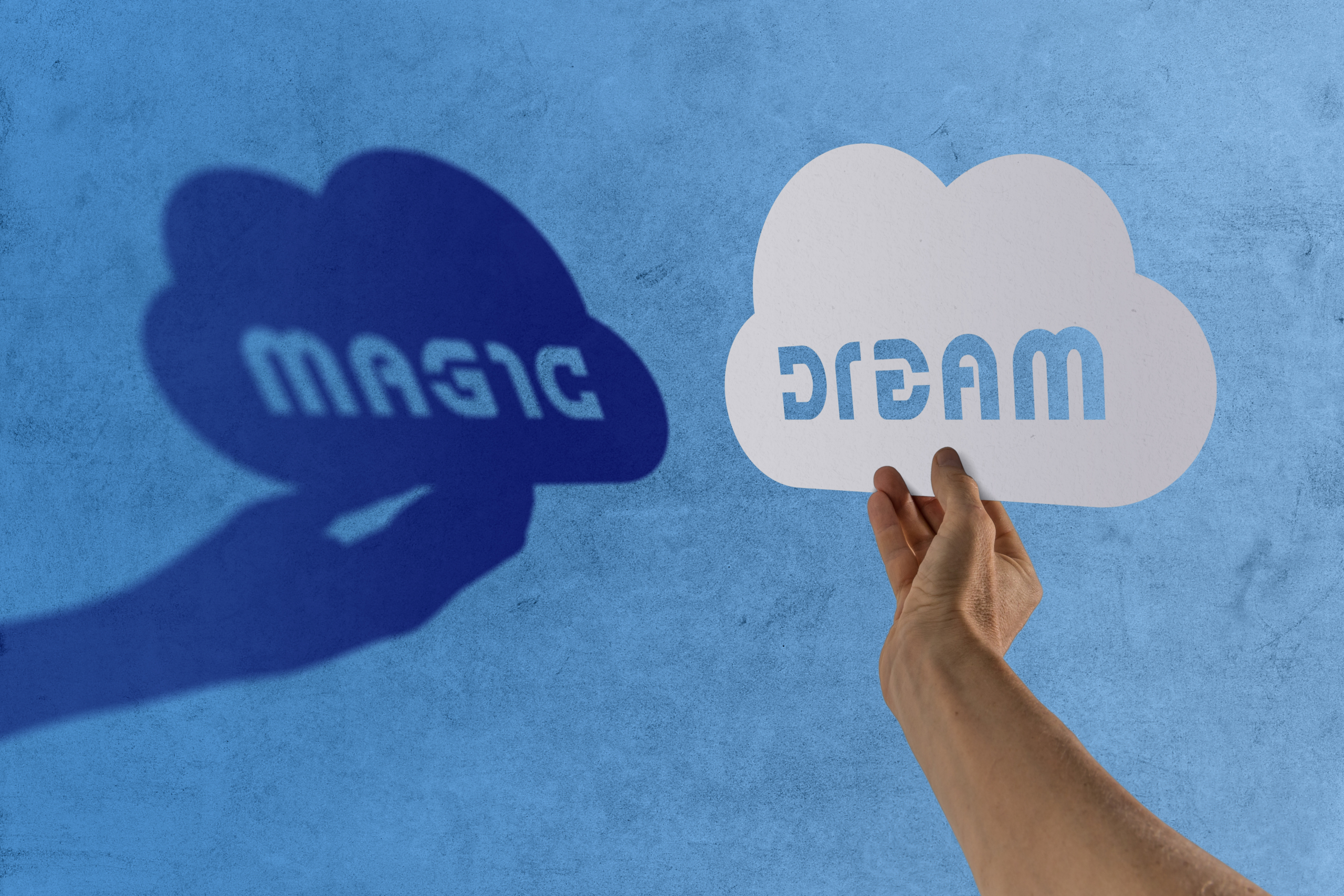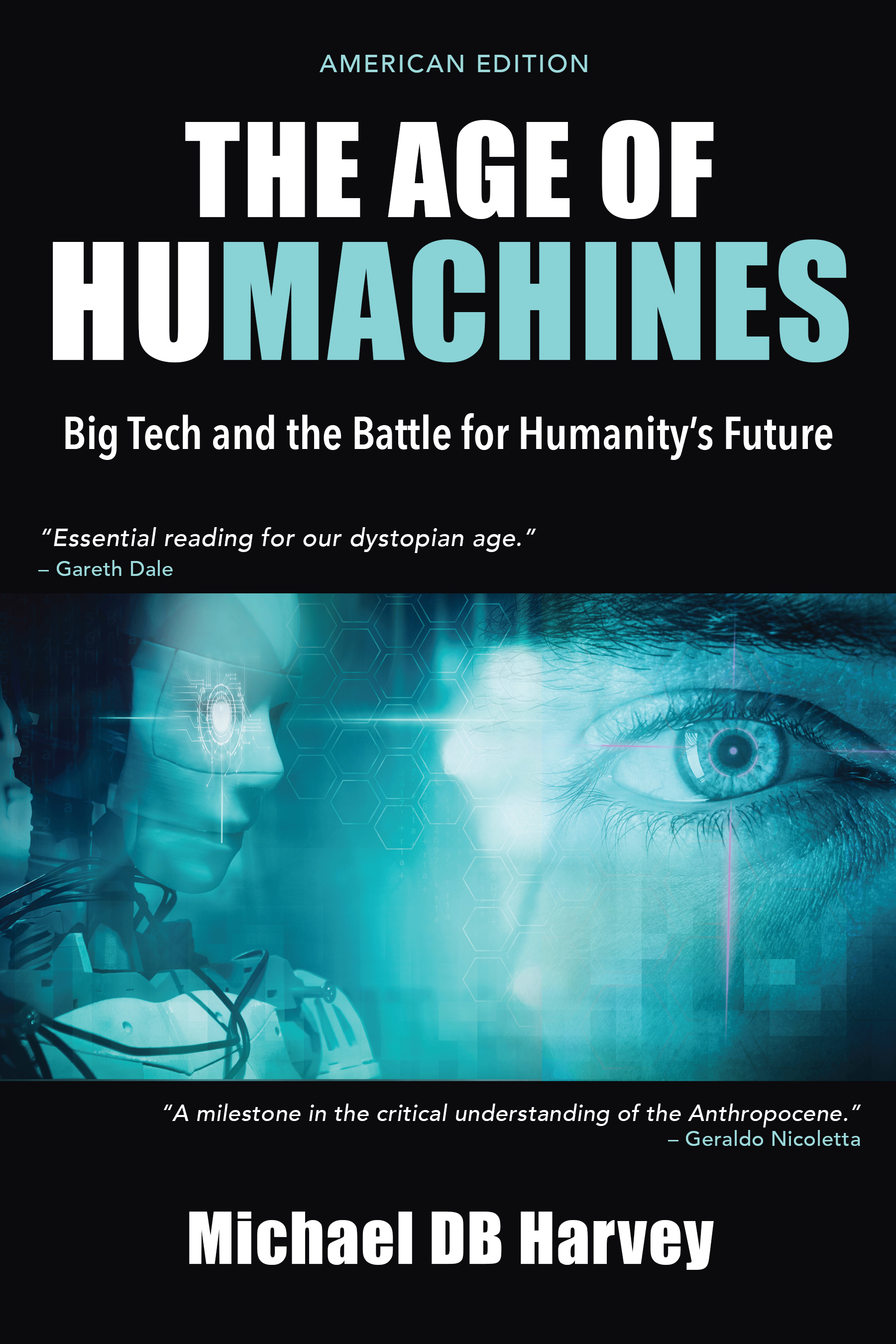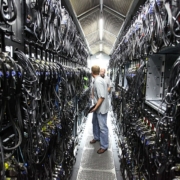Maybe We Should Be the Ones Grokking: Thoughts on Elon Musk’s xAI Super-Polluting Supercomputer
by Helene Langlamet
Is it just our filter bubbles? Or is an understanding of the environmental impact of artificial intelligence (AI) slowly making its way into the mainstream? Recently, a spate of news stories have highlighted the hefty environmental footprint of AI. Take for instance this recent article by the Washington Post on the hidden water footprint of using AI chatbots. Or this article by The Guardian on how the greenhouse gas emissions of data centers may be almost eight times higher than large technology companies like Google or Microsoft will acknowledge.

What it really takes to store our data: Physical infrastructure of a National Petroleum Corporation data center in China (Charlie fong, Wikimedia).
One particular story I’d like to highlight here, however, is a four-minute segment from NPR’s All Things Considered. The story reports on the negative environmental and health repercussions of a recently unveiled datacenter in Memphis. The facility is slated to provide massive computing power to Elon Musk’s latest AI project: a chatbot “with a sense of humor,” christened “Grok.” Grok is a word coined by science fiction author Robert A. Heinlein to mean “to understand profoundly and intuitively.” In Musk’s own words, he intends it to become “the most fun AI in the world.”
There are two reasons that this story stood out to me. Firstly, it offers an especially stark juxtaposition between Big Tech entrepreneurs’ lofty AI visions and their on-the-ground, real-world implications. Musk explains the aim of Grok is to be “fun” and to “understand the universe.” But on the ground, this translates to generators burning methane gas without environmental permits in a community already afflicted by high rates of asthma and low life expectancy.
The second reason the story caught my attention is that it highlights the undemocratic nature of the land allocation process that the project relied on. The company did not brief environmental agencies, city council, or community members before opening the facility. Memphis Councilwoman Yolanda Cooper-Sutton reports she learned about the facility opening through the local news.
This rushed and secretive way of proceeding is by no means a feature unique to Musk’s latest AI project. Rather, it is a ubiquitous part of the industrial land permitting process in the United States. The information industry as it exists today is heavily reliant on this secretive and undemocratic process. It may like to portray itself as progressive and cutting-edge. But it depends for its existence on a playbook as old as the country–in many ways much older.
Nothing New Under the Sun

A long history of land dispossession: The Creek People on the Trail of Tears (Photograph of a painting at the Ocmulgee monument by TradingCardsNPS on Flickr).
The information industry is plowing the same furrows that the fossil fuel industry dug before it. Steven Stoll, in his history of the successive land dispossessions that allowed the transfer of land first from Native Americans to European settlers, and then from these settlers to the coal industry, explains how key the theft and destruction of land was to fashioning a new industrial economy. Without the destruction of what Stoll calls the homesteaders’ “ecological base” (the commons that they relied on to sustain their agricultural way of life) through logging and then coal mining, farmers could not have been pried away from their land and absorbed into the wage labor economy. The capture of this labor pool was key to industrializing the economy.
Brian Czech made a compelling case in Supply Shock that the continued pursuit of economic growth cannot be uncoupled from the unsustainable exploitation of land for agricultural and extractive activity. The window Stoll provides into the role of land expropriation in creating industrial economies makes Czech’s conclusion even more alarming. Basically, where we find high-intensity agriculture, we should also expect wanton destruction of land for natural resource extraction. Since the rise of the digital age, much of this destruction is for powering our “information economy.”
In the early days of American history, this pattern of land dispossession was often accompanied by violent conflict. Today, this has mostly given way to legal and regulatory instruments. These include zoning laws, which build on the destructive legacy of redlining. (Redlining was the historical legalized exclusion of black people from “high-value” neighborhoods during the Jim Crow Era.) These instruments also include federal and state land permitting processes. Freeing land up for industrial development is not so much about forcing people off their land anymore. Rather, it is about trapping them on land that the industry is free to poison with impunity.
If you take the time, like I have, to study these sites of industrial land appropriation, you will probably conclude that the business of destroying our environment and hollowing out our rights are two sides of the same coin. This is the legacy that Elon Musk’s Grok builds on, along with the rest of the AI revolution. It draws us in with ethereal images of wispy cloud computing. But behind that façade, all we’re getting is an extra serving of whirring factories and trucks and smokestacks. And along with it, its attendant violations of our ecological integrity and human rights.
Debunking the AI Industry’s “Green Growth” Narrative
Unlike the fossil fuel industry, our information industry has so far managed to hold its legacy of environmental destruction and human rights violations at arm’s length. You don’t have to look further than Elon Musk to illustrate this point. Recall the time before the public relations disaster of what I’d like to call “ex-Twitter.” Around the time his electric vehicles hit the market, Musk was able to effortlessly position himself as the great decarbonizer of the private transportation sector. This was despite his simultaneous allocation of vast amounts of natural resources to his AI and space exploration ventures.
Unlike the fossil fuel industry, the information industry has a compelling story to sell us. As Big Tech proponents purport, and our media system amplifies, the creation of AI will help us unlock the technological efficiencies necessary for green growth.

The Magic Dream Cloud (Basile Morin, Wikimedia).
It is easy to understand why this argument is seductive. AI, even in its current larval stage, functions in many ways beyond the realm of human comprehension. It even extends beyond the comprehension of the engineers who develop it. Take Sebastian Bubeck, for example, a Microsoft engineer for GPT4 who was tasked with testing the new AI. Bubeck knew that GPT4 was trained exclusively on text. So he came up with the idea of asking the AI to draw a unicorn using an obscure coding language. GPT4 succeeded, but Bubeck has no idea how. If AI can draw unicorns without us knowing how, the reasoning goes, perhaps it can also solve complex problems we don’t know how to solve. Problems like climate change.
However, as the mainstream media is finally beginning to acknowledge, AI is a technology like any other. And technology has an inherent ecological footprint. In other words, AI does not escape the fundamental truth governing all technological progress. It cannot be pursued without consuming natural resources. And the efficiencies that our R&D industry unlocks cannot offset the environmental devastation associated with our rate of economic growth. It doesn’t help that with digital technology, from AI and cloud computing to cryptocurrency, the resources consumed are massive. To quote NPR’s supercomputer story, “AI requires more electricity to complete even simple tasks compared to typical search queries.” And in the United States, “about 60% of that electricity comes from burning fossil fuels.”
The story we are fed is that AI can unlock untapped cognitive resources to solve our environmental crisis. But more than likely, it will only compound this crisis, by adding an environmentally destructive dependence on information to our current environmentally destructive dependence on cheap energy. Which brings us back full circle to the information industry’s adoption of the fossil-fuel playbook of government-sanctioned, undemocratic, massive, and secretive theft of land and natural resources.
Why Environmentalists Should Care About Big Tech
Until recently, public anxieties surrounding AI and human augmentation have largely ignored its ecological impact. Instead they tend to focus on the potential advent of the “singularity” or on more immediate problems like the deskilling of our college students and the gutting of our creative and white-collar professions. This may have lulled the more ecologically minded among us into ignoring the environmental toll of AI. But that doesn’t make it less real.
 This environmental toll is one of the core focuses of Michael DB Harvey’s book The Age of Humachines, the American edition of which will be published under the Steady State Press imprint next month. Harvey manages to make accessible to the general public ideas that previously seemed exclusive to obscure academic fields like critical data center studies. I opened this article by commending the mainstream media for taking on the ecological footprint of the information industry. I also want to express my heartfelt appreciation for Harvey’s effort to bring the potential human and environmental casualties of what he calls the “Humachine Revolution” into the mainstream.
This environmental toll is one of the core focuses of Michael DB Harvey’s book The Age of Humachines, the American edition of which will be published under the Steady State Press imprint next month. Harvey manages to make accessible to the general public ideas that previously seemed exclusive to obscure academic fields like critical data center studies. I opened this article by commending the mainstream media for taking on the ecological footprint of the information industry. I also want to express my heartfelt appreciation for Harvey’s effort to bring the potential human and environmental casualties of what he calls the “Humachine Revolution” into the mainstream.
The Age of Humachines is essential reading for anyone wanting to cut through the human progress narrative that Big Tech entrepreneurs have been spinning around their corporate greed. It offers a timely exploration of the environmental destruction and the democratic hollowing central to the humachination agenda.
In Humachines, Harvey argues that the preservation of our natural environment and of our “indigenous capacities” (skills such as wayfinding, political decision-making, and caring for the community) are two prongs of the same goal. Keeping both in mind are key to steering clear of the Big Tech vision of what Harvey calls the “Technocene.” Instead, Harvey advocates for a future—the “Ecocene”—where we collectively determine the use of our technologies. The weakening of democratic control has always been a necessary ingredient for widespread ecological exploitation under capitalism. Bolstering democratic power is likely to be an effective and underappreciated means of slowing down or reversing land exploitation.
Striving Toward the Ecocene
Harvey closes his book by arguing for a different kind of utopia. He paints a vision for a future “that regards the Enlightenment goals of democracy and social equality as much more than political rhetoric.” It would be a future where we could continue to cherish the gifts that human technology and science have bestowed upon us. But we would also have the skills and the power to recognize when “enough is enough” (p.430).
What would it look like if we applied the Ecocene playbook to the siting process of Musk’s supercomputer in Memphis? To begin with, public officials, environmental agencies, and the community would be notified long before a single molecule of industrial by-product was released. They would have the opportunity to weigh in before a single drop of water or joule of electricity was consumed. Musk’s plan to site his facility near a community with a history of industrial exposure would also be scrutinized. But that would just be the beginning.
Decisions driving the allocation of land for technological development could be placed in the hands of affected communities. Steering committees could be selected from these communities using a process similar to jury selection. These committees would have the power to make binding decisions about the proposed land development. More broadly, no permitting process for an industrial development would be considered legitimate unless the permit was issued through a democratic process involving the parties concerned. No article could get published framing a Big Tech entrepreneur’s and the affected community’s position on a proposed industrial project as equivalent. Because the truth, Harvey argues, is that decisions about technological progress should be made collectively. We are all inheritors of the decisions of the engineers of the Humachine Age. It’s time we take back the reins.
Helene Langlamet is Managing Editor at CASSE





Technological development and environmental degradation are two sides of the same coin. They always have been and, without a very serious upgrade of the cognitive tool kit of humans in general, they always will be. We allow ourselves to be prisoners of our evolutionary history because it is really hard work to do otherwise we are evolved to be lazy except as necessary to secure our immediate survival and ability to reproduce. The legacy it has left us is incompatible with our long term survival while maintaining anything remotely resembling the current societal/economic model. We know at a visceral level that our current path will lead to the destruction of our civilization and quite likely most of the life on the planet . Despite this we are unable to control our primal drive to satisfy our immediate needs/wants/desires and focus our collective attention on the future even though failing to do so will quite certainly ensure that the future is worse than the present. The naive (deluded, immorally motivated) idea that we can grow our numbers and increase our consumption in perpetuity with the help of technology ignores the most basic of truths.. Most of what we have now was gained by externalizing the real cost. We rely on an economic model that argues with a straight face that if we don’t need to immediately account for a cost in order to achieve our immediate end we can simply pretend it does not exist or discount it until it approaches zero in our calculations. We once, perhaps in a forgivable, naive way, thought the planet could simply keep giving and we could simply invent our way out of trouble as it arose. We have known for several generations that this is categorically false yet we keep blindly stumbling forward stealing from the future. AI is just the latest manifestation of our collective idiocy. It just might be our last.
I really wish I could offer some hopeful insight, but AI (and cryptocurrency, etc) are just a massive wave of bad news for the planet. Interesting technology to be sure (I work in technology) but the *cost* is just staggering.
Sigh. All I can add is that we might see an interesting reckoning with this in the state of Texas, where (I’m going from memory here) ERCOT planners recently took stock of the electricity demands they’ll need to accommodate, based on the recent binge of data center building in Texas. The estimates stunned even the ERCOT people, they’re looking at needing to double electricity production in the next six years.
I really don’t know what to say except: these are interesting times. And as the old saying goes, if something can’t go on, it won’t.
This is a huge article, but I’ll go for a short comment, as I wait to read Harvey’s book. Recognizing “when enough is enough” should include a citizen’s right to abstain from a particular technology, which does not contradict the Utopian idea that tech development decisions should be made collectively. What I discern from a patiently organic Neo-Luddite movement is that, without being anti-tech, folks are beginning to opt out of dehumanizing technologies. I laughed when Nancy Reagan said “Just say no,” but now it seems that refusal can be revolutionary.
Oh the irony! Without a server farm, this wonderful essay would never have been published, nor would any of us get to read it. We employ the Master’s tools in our effort to disempower the Master. What choice do we have? I know someone who is working on building a knowledge base to assist UN ambassadors and staff in a pro-earth paradigm shift. The knowledge base uses AI as its storage and retrieval engine. More irony. Of course, the more we use AI, the more powerful it becomes, since it learns from every interaction it either participates in or can observe. In order to exchange knowledge, ideas, and emotional support, we feed the beast in the process.
Alas, at our staggering scale of population, returning to the old fashioned method of paper and ink newsletters promotes deforestation.
In this Catch-22, what shall we do?
So many environmental arguments both for and against paper books vs e-reading, but I would like to think books have an ecological advantage in a steady state context, since, with public libraries and book exchanges (not part of GDP), one copy of a book can have multiple readers, with a single production cost. No plugging in or charging up to read and reread a book. (Disclaimer: I write books.)
This story highlights the importance of Herman Daly’s distinction between ecological sustainability, distributional equity, and allocative efficiency, and the separate policy instruments required to achieve these goals.
Daly was correct when he said that a sustainable rate of throughput (resource inputs/waste outputs) could only be achieved by explicitly restricting the rate of throughput to one that is within the ecosphere’s regenerative and waste assimilative capacities – that is, by imposing quantitative ‘caps’ on the rate of resource use (and the rate at which some forms of waste are generated). To believe we can operate sustainably at the macro level by having everyone do the responsible thing at the micro level is delusional. Without caps, reductions in the throughput-intensity of individual activities, and therefore the throughput-intensity of GDP, can easily be overwhelmed by a greater volume of individual activities caused by the Jevons effect and/or population growth. Total throughput simply increases.
If the rate of throughput was capped and the rights to access material and energy resources were auctioned by a public authority and then tradeable in a secondary market, any increase in energy/CO2 needed to run data centres and server farms would drive up the cost of operating them and everything else as the competition for the restricted throughput intensified. The cost would be passed on to the final user/consumer. Using AI, accessing the internet, sending an email, etc. would no longer be as cheap as it presently is. People would have to choose between sending a pointless email, posting a photo of the meal they’ve just eaten, and heating/cooling their house. Internet/AI use would dramatically fall (people would take up affordable data-limiting plans with their service-provider) and many data centres/server farms would close down. Without caps, it’s too easy to (cheaply) increase the rate of throughput beyond sustainable levels to meet rising demand.
Caps, yes. Auction, no.
Info should not be restricted to whomever can pay the most, nor should publication be restricted on that basis either. If there were an auction for publication rights, it would inevitably go to porn, advertising and spam. There already is a pay to play system for gaining information. It’s called college tuition.
I don’t know what to suggest. Anything I can think of on the publication side amounts to censorship. On the access side, need to know is difficult if not impossible to rank.
A return to 1960s TV with its very limited stations and high standards for airwave access by the FCC, journalistic standards for newspapers and science journals, and tight restrictions on commercial content (ads, e-commerce) might work. It could be used to clean up mis- and dis-information, porn, ads and ad trackers, digital exchange of private information (and thereby hacking and spam).